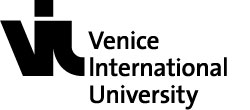S2210 Global Governance for Peace and Security, Cooperation and Development
Professors
Schedule
Course description
Global Governance does not mean global government, but global cooperation – and not only between states. Also involved in Global Governance are such transnational institutions as the United Nations and ancillary organizations, civil society as represented primarily by Non-Governmental-Organizations, and local institutions from different fields: economic, political, social and scientific. On the other hand, Global Governance does not describe an existing reality of contemporary global politics, but an approach to international cooperation, which aims to contribute to the solution of global problems. The main problems which the seminar will work on are international cooperation in peacekeeping, military interventions in violent conflicts, cooperation on security issues such as the war on terror; but also concern global questions of economic, social and environmental development, which naturally always have to be implemented through specific local and regional processes. Beyond this empirical, practical and historical side Global Governance is also a scientific technique for understanding global, international and national politics particularly with a view to the mutual influence of official institutional politics and “subpolitics” (Ulrich Beck) engendered by global economic players, civil societies, the mass media, scientific and technological developments. The seminar will also deal with this scientific concept of Global Governance, and naturally also with its history, in so far as the concept of Governance references Michel Foucault’s concept of “Governmentality” and, in a longer perspective, Immanuel Kant’s federalism of free states.
b) The course offers the students an opportunity to work on Global Governance themes from different disciplines and from different national perspectives; for example economic, political, humanitarian, social or technological perspectives on the process of globalization and aspects of Global Governance in their own countries.
Teaching and evaluation Methods
Lectures, discussion, student presentations, reading and analysing texts together in the seminars
Presentations, written exams, each 50 %
Bibliography
AVANT, DEBORAH D., MARTHA FINNEMORE, SUSAN K. SELL, (2010), Who Governs the Globe? Cambridge University Press.
BA, ALICE D., HOFFMANN, MATTHEW J, (2005), Contending Perspectives on Global Governance, London, New York Routledge.
BECK, ULRICH, (1996), The Reinvention of Politics. Rethinking Modernity in the Global Social Order, Cambridge: Polity Press.
BECK, ULRICH, (1998), World Risk Society, Cambridge Polity Press.
FOUCAULT, MICHEL: Security, Territory, Population: Lectures at the Collège de France, 1977-1978 St. Martin's Press New York.
HEWSON, MARTIN, SINCLAIR TIMOTHY J. (eds.) (1999), Approaches to Global Governance Theory, Albany State University of New York Press.
JAMES, PAUL, SOGUK, NEVZAT, (2014), Globalization and Politics, Vol. 1: Global Political and Legal Governance, London Sage Publications.
KANT, IMMANUEL, (2003), Perpetual Peace; A Philosophical Essay, Hackett Classics.
KORTEN, D. C., (1995), When corporations rule the world, Berrett-Koehler Publishers.
WILKINSON, RORDEN, (2005), The Global Governance Reader, London: Routledge.
WEISS, THOMAS G., Wilkinson, Rorden, (2018), International Organization and Global Governance, New York: Routledge.




















